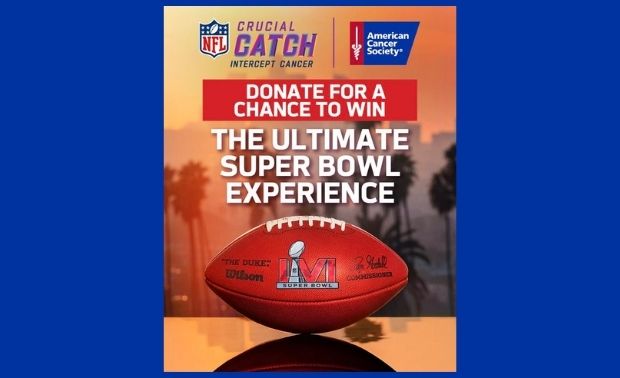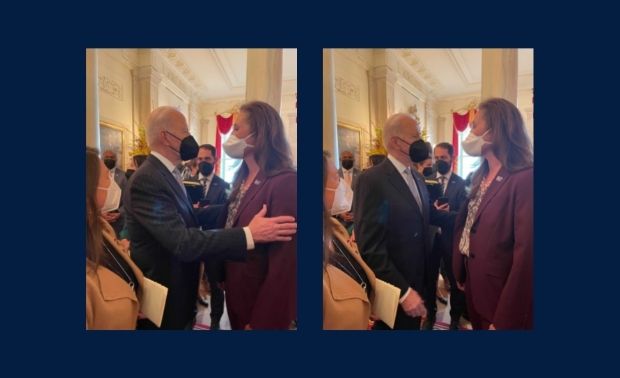Now through Feb. 4, supporters can enter for a chance at the trip of a lifetime.
For a donation of at least $10 to the American Cancer Society (ACS,) fans can enter to win the Super Bowl experience of a lifetime: two tickets to Super Bowl LVI in Los Angeles, roundtrip airfare and hotel, and seats next to our ACS celebrity partner, the actress and TikTok sensation Addison Rae.

The sweepstakes closes Feb. 4, 2022, at 11:59 p.m. ET, and each entry is $10. There’s no limit on the number of entries a fan can submit.
Please note that ACS and American Cancer Society Cancer Action Network (ACS CAN) staff, as well as members of the ACS and ACS CAN boards of directors, are not eligible to win. Other volunteer leaders, including area boards, are eligible to win, so spread the word!
To enter, visit cancer.org/superbowl.
What’s the mission impact?
All proceeds benefit Crucial Catch CHANGE Grants that fund prevention and screening initiatives in communities with the greatest need. Since 2009, ACS and the NFL have partnered on the Crucial Catch program, which focuses on the prevention and early detection of multiple cancers, including breast cancer. Crucial Catch helps more people catch cancer early, when it may be easier to treat, and it also aims to address the unequal burden of cancer in historically disadvantaged communities.
Through this partnership, the NFL’s contributions fund ACS’s Community Health Advocates Implementing Nationwide Grants for Empowerment and Equity (CHANGE) grants in every NFL market to help underserved communities receive critical cancer screening resources and prevention information.
Since 2012, health centers have provided more than 1 million interventions, including patient education, screening reminders, and navigation.
The pandemic has had a devastating impact on the ability to get screened. Since March 2020, Americans have been urged to delay routine cancer screenings. As a result, screenings have dropped between 86% and 94% for some cancers. In 2020, CHANGE grants were funded to aid in the restart of cancer screenings in communities most in need.
*Shared from MySocietySource.













































